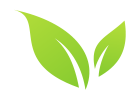Sustainability. Organic. Eco-friendly. There are so many buzzwords that people use interchangeably in relation to food, farming, and homesteading that it’s enough to make you want to duck and cover from the varying vocab hurled your way.
We get it: There are misconceptions about what sustainable living is all about, so we’re here to clear that up for you.
How many of the following 4 misconceptions about sustainable living do you believe?
(Pssttt… We also have majorly exciting news to share with you—keeping reading to find out!)
1. Sustainability is NOT an official certification.
While “organic” is a label used to describe products that follow specific farming regulations set by the USDA, “sustainability,” on the other hand, is an eco-friendly mindset: one that encourages not only farming practices that protect our planet, but lifestyle practices as well.
When you go all in with a sustainability-mindset, you shift from a desire-based consumer attitude to a need-based attitude. Your purchasing habits begin to reflect the question: Do I really need this? (And if you’re in the drugstore candy aisle, the answer is probably always a hard no.)
Families enjoying Stoney Creek Farm’s seasonal U Pick Gardens
2. Sustainable living is NOT large and in charge.
Here’s what a sustainable farm or homestead is not: a mammoth farm that covers the same acreage as a mid-sized town. “Go big or go home” is NOT the motto for sustainable living.
Sustainable farmers and homesteaders tend to own less land; in fact, sustainable living can be practiced in your own neighborhood backyard. But less land does not mean less diversity: a sustainable farmer or gardener will grow a larger crop variety, leading to better crop productivity, enhanced soil quality, and more.
Stoney Creek Farm as seen from above.
3. Sustainable farming does NOT stop at the food production point.

As in, sustainable farming is mindful not only of how the food is raised, but also how it is packaged and sent to the consumer.
At Stoney Creek Farm, we make it a priority to use glass packaging rather than plastic when possible. Glass is fully recyclable, and while some plastics can be repurposed, they are still made from nonrenewable petroleum, and so are decidedly not an earth-friendly option.
Sustainable farming also takes into account how food travels to your table. For instance, you may purchase organic blueberries at Whole Foods, but those blueberries may have been trucked across the country to get to your store. Sustainable farmers produce food and other products that directly benefit their local community, not requiring long, gas-guzzling travel before it reaches the dinner table.
Sustainable farming directly benefits the local community.
4. Sustainable living is NOT all about growing food.

When you think of sustainability, you may automatically associate it with only farming. And while cultivating food in a sustainable manner is, of course, a major focus of sustainable living, it’s not the entire focus.
Sustainable living extends beyond simply the way you raise your green beans, tend to your chickens, or pickle your cucumbers. Remember: sustainability is a lifestyle. This lifestyle extends to everyday practices:
- Reducing paper use in your office
- Choosing transportation options that reduce gas use, like carpooling
- Purchasing from companies that promote ethical production practices, from employee wellbeing to the materials used to create the product
- Investing in your local community, like participating in volunteer clean-up days or supporting laws that protect the land
- Using natural, eco-friendly cleaning products
Sustainable living means implementing eco-friendly practices in all areas of life, like volunteering to clean up litter.
We hope this clears up any misconceptions you may have had about sustainable living!
But most importantly…
Are you ready for a deep dive?!
Friends, we are SO excited to announce that we’re releasing a second edition of our book Dirt Rich: How to Experience More Joy and Less Stress Through Sustainable Farm Living on November 20! Our latest edition includes updated information and new sections, including a section about beekeeping.
Ready to deep dive into the ins-and-outs of sustainable living? Dirt Rich is for YOU.
We’ll be sharing more from Dirt Rich in our upcoming email newsletters, so be looking in your inbox for additional tips & tricks on how to experience more joy and less stress through sustainable living!
The second issue of our book, Dirt Rich, will be available November 20!
Order Now!




